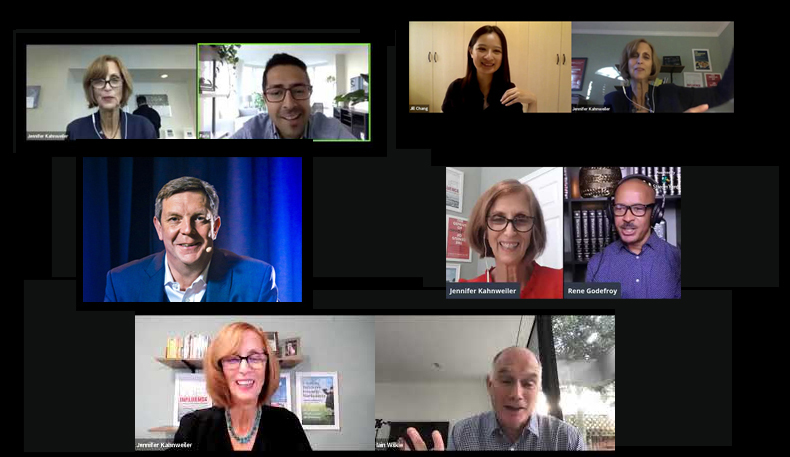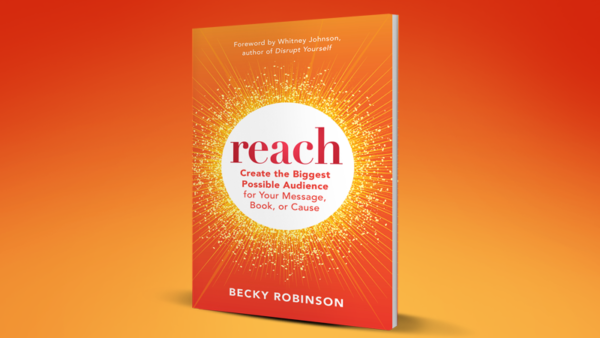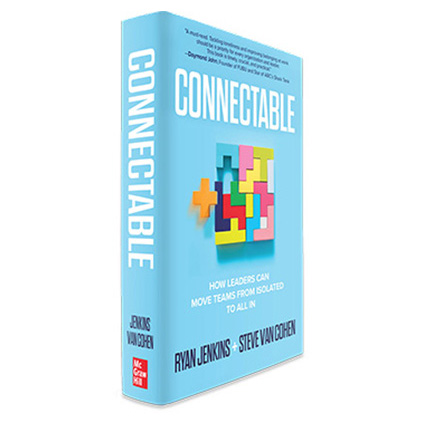Recently I decided that I wanted to go deeper with some of the terrific introverted leaders I have encountered in my work. I started an interview series called “Introverted Leaders Around the World.” And I am so glad I did!
These leaders are consultants, executives, and entrepreneurs. They identify as introverts, but sometimes aren’t sure about where they fall on a given day. Most are also introvert advocates. In these short talks we connected on many levels, despite our different personality styles, nationalities, gender, and sometimes age.
What were some of their key lessons?
We discussed three of these introverted leader interviews in a past blog post. Here are some snapshots of lessons I gleaned from five additional interviews.
I hope you will check out all of the Introverted Leaders Around the World series on my YouTube channel.
Iain Wilke – Great Britain
Iain Wilke is a Quiet Leadership Coach in Great Britain and a former Partner with EY. He is a model of introverted leadership. In this interview, Iain shares some of the challenges and triumphs he has faced as both an introvert and a stutterer. He believes that you will succeed if you treat people well and that great clients and great service all spring from this approach.
Iain was encouraged to push beyond his limitations and had the support of key mentors. He also worked hard and once recorded a voice mail to a client 13 times to make sure he got it right! Iain advises people to be “proud introverts” and suggests introverts ask extroverts to bring them into the meeting early. He demonstrates how preparation, one on one conversations, and practice make such a difference for introverts.
Iain is committed to raising the profile of stuttering and founded the charity “50 Million Voices.” Together with leaders from 15 countries, their goal is to transform the workplace for people who stutter.
Iain can be reached at his website.
Rene Godefroy – Haiti
Rene Godefroy was able to take himself from desperation and misery in a tiny village in Haiti to success as an entrepreneur, award-winning author, and a keynote speaker sharing stages with global leaders. Rene shared how he loves reading and applies the concepts he learns by discussing his ideas with others. He also is an engaged listener who has learned the power of asking questions. Rene believes that no condition is permanent, and his quiet demeanor has served him very well.
Contact him on Facebook or at his website. His book is called Kiss Your Excuses Goodbye: No Condition is Permanent. These days you can also find him on Clubhouse, where he is a moderator and speaker in many rooms.
Frank Hagenow – Italy (originally from Germany)
It was also a pleasure to engage in dialogue with my colleague, Dr. Frank Hagenow of Venice, Italy who relocated there from Germany. Dr. Hagenow is a psychologist, business coach, and keynote speaker who helps leaders focus on decency and respect and avoid mind games. Frank considers himself more introverted than extroverted and his early jobs as a driving school instructor (including some close calls!) taught him to adjust from one moment to another and to learn to work with different people who have varying needs and levels of education. Frank works with senior leaders who are doing quite a bit of self-reflection about the next phase of their lives. He says it helps them to listen to the “silent voices” within themselves, their introverted sides, to really understand what they want next. Frank’s newest book (translated to English) is Leadership Without Mind Games: How to Win People with Ethics and Decency.
Faris Khalifeh – Canada (originally from Dubai)
Introvert coach, Faris Khalifeh discussed his experience as an introvert growing up in Dubai and how he sees Vancouver, Canada as a city that embraces introverts. He believes there is still great bias against introverts and that introverts can protect their quiet time. He believes the MBTI (Myers Briggs Type Indicator) is not about putting a label on you, but can create better understanding. “Self-knowledge is the basis of self-empowerment,” says Faris. The challenges for introverts include extroverts taking over in meetings, being put on the spot, and feeling marginalized because their traits are misunderstood.
Faris suggests introverts not have back-to-back meetings, take many breaks through the day, and take time alone. He says meditation was a game changer for him.
Faris can be reached at his website.
Jill Chang – Taiwan
Jill Chang, author and businesswoman, has fifteen years of international experience in diverse industries including sports, state government, and nonprofits. She currently oversees a team spread across twenty-three countries.
She started out in professional baseball in the US and was spending so much energy daily having to be in such a people-intensive extroverted environment. She realized that she had to be herself and know her limitations in order to be successful.
Every day when she steps outside her door, she is out of her comfort zone, but knows she must step out there. In general, eastern Asia countries are more introverted, but Taiwanese culture is western. With globalization, they learn western studies and western best practices. She loves remote work because she has total control over her energy. She suggests finding a balance between your physical and virtual presence. Jill believes carefully designing your day is critical for remote workers.
Her book is Quiet is a Superpower: The Secret Strengths of Introverts in the Workplace.





